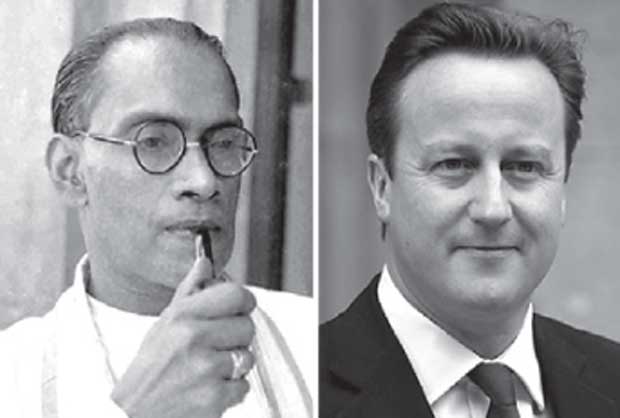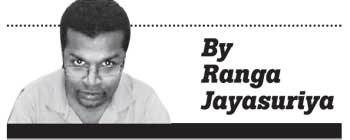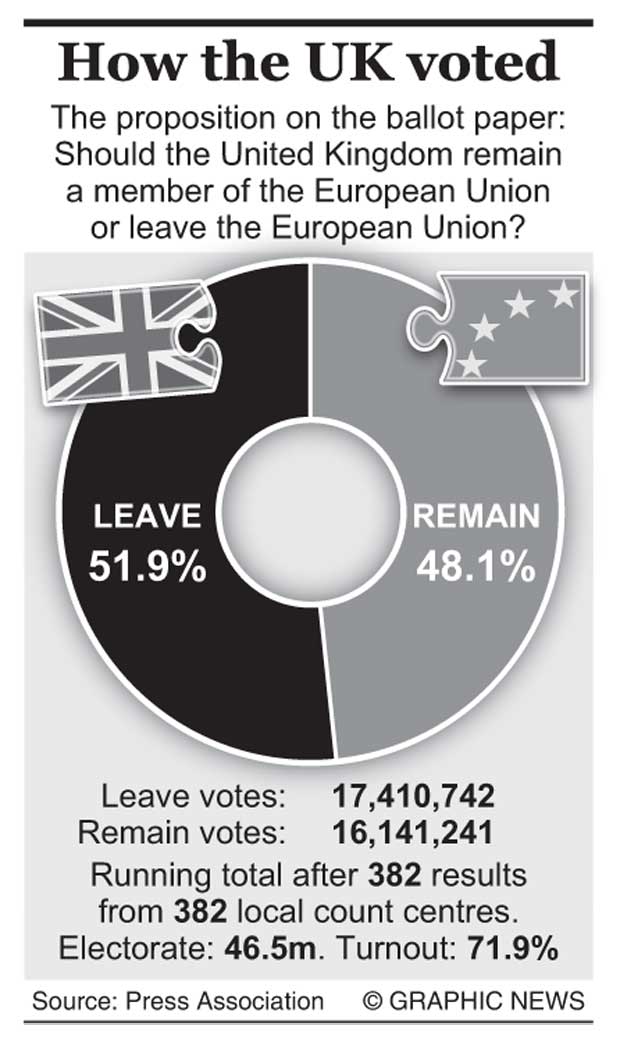Reply To:
Name - Reply Comment
Last Updated : 2024-04-25 16:11:00

 ommentators of South Asian politics tend to view the voting habits in the region with a degree of condescension. They indeed have a point. In every election, India, the world’s largest democracy, habitually sends a mindboggling number of remanded crooks, film stars, feudal heirs and many other worse salubrious individuals to their regional and central assemblies.
ommentators of South Asian politics tend to view the voting habits in the region with a degree of condescension. They indeed have a point. In every election, India, the world’s largest democracy, habitually sends a mindboggling number of remanded crooks, film stars, feudal heirs and many other worse salubrious individuals to their regional and central assemblies.
In Bangladesh, two feuding widows have hijacked the destiny of the people, and that is being accomplished through the hotly contested elections. And, in our country, millions of opposition voters favoured rabblerousing opportunists of the Joint Opposition over more principled members of the same party during the previous election.
However, that is not our problem alone.
When the Egyptians voted in their first free and fair election after the fall of Hosni Mubarak, they elected in overwhelming numbers, not the Liberals, but the Islamists of the Muslim Brotherhood. Thirty years ago, when the Algerians were given the same opportunity, they voted for the closeted Salafists (And the secular army annulled the vote, leading to a bloody civil war).
And in 2006, Palestinian voters, disgruntled with the mainstream PLO, elected the terrorist group Hamas as their Government. Those mismatches of the promise and outcome of democratic experience are not confined to a region. Last month, Austria went to inches closer to elect a Far-Right candidate with Nazi sympathies as the President, a ceremonial post, which nonetheless is significant.
Many explanations have been given for the failure of democracy, or its under -performance in the developing world. A case has been made for strong independent institutions, which are lacking in those countries. A correlation between economic wealth and the success of democracy has been suggested; richer the country, more enlightened the democratic experience becomes. That has also been used to buttress the merit of another argument known as authoritarian transition, in which countries, which grew faster under pro-growth authoritarian political and economic models, switch to democracy as they grow richer (Taiwan, South Korea, and Chile).
Partly driven by the failure of democracy in the Middle East, some others have suggested, rather  controversially, but not without empirical evidence, that some societies were not fully compatible with democracy. Democracies are like old arrack; they mature as they age. With the passage of time, and with other ingredients, most importantly a free market and independent institutions in place, they create a democratic culture of tolerance and accommodation in the wider society. Those societies, it is believed, are far more enlightened than their counterparts in other parts of the world.
controversially, but not without empirical evidence, that some societies were not fully compatible with democracy. Democracies are like old arrack; they mature as they age. With the passage of time, and with other ingredients, most importantly a free market and independent institutions in place, they create a democratic culture of tolerance and accommodation in the wider society. Those societies, it is believed, are far more enlightened than their counterparts in other parts of the world.
Now that Britain, the world’s oldest continuous democracy having voted to leave the European Union, in the process, sending the Sterling Pound and stock markets around the world crashing, and risking itself to a self -inflicted recession, those limits of enlightenment of the popular mandate have been tested. Though there are attempts to glorify the disaster, describing it as the ‘will of the people’, it appears now that asking the people to decide on things they have little idea about and are ill informed, and therefore could easily be swayed by populist rhetoric is no better than letting Sajin Vas, former wharf-clerk-turned Rajapaksa-hack, run the SriLankan Airlines.
Both are bound to doom.
The fifth century BC Athens is widely considered as the birthplace of the modern form of democracy (Though earlier Indian kingdoms and other societies had adopted some forms of democratic practices, they were monarchies, which used consultation among the nobility, and not systems where citizens directly took part in decision making or electing their representatives as in Athens).
As much as the Athenian model is touted today, it was loathed then, for it was as much as the rule by the people, could also become the rule by the mob. Neither Plato nor Aristotle was a fan of the Athenian model. Plato’s ideal form of Government was a rule by a philosopher king.
Later, the framers of the American Constitution sought to put in place mechanisms to moderate the outbursts of public impulses. The US Senate is elected for six years in staggered elections, was therefore meant to be a shock absorber of short term fluctuations of public opinion.
And the world’s largest democracy, India, of which the success of democracy is a curious case for many, stand on the back of a set of strong independent institutions, most notably an activist Judiciary.
Independent institutions anywhere in the world are of elitist orientation, and generally unelected, and by their very composition and the nature of appointment, they are insulated by the sway of public impulses.
However, democracy also gives a huge sense of entitlement to its citizenry, something the people in authoritarian States could only dream of. And people may want to take power back from those enlightened unelected bodies -like the Britons wanted, from the powerful EU Civil Service, which they thought was impinging on their sovereignty.
And politicians could well pander into those impulses, out of naivety or political opportunism. Late Prime Minister Sirima Bandaranaike abolished the Public Service Commission for she thought unelected bureaucrats should do the will of the politicians, paving way for the politicisation of the Sri Lankan Government Service.
Now, David Cameron is being criticised for forcing a referendum upon the British public (who did not ask for it) in order to placate the backbenchers of the Tory party.
Mr. Cameron thought he could win his gamble, but he lost, and is now leaving behind as he steps down from the office, a Britain, fractured, less influential and poorer.
This reminds me of perhaps the worst miscalculation of our own history. In 1956, S.W.R.D Bandaranaike, contesting at the General Elections, offered to make Sinhala the only official language. People did not ask for it, he was pandering to a minority of Sinhala Buddhist campaigners. But, when offered, people gleefully accepted it.
S.W.R.D calculated rightly the electoral advantage of his ploy, but, he missed the bigger picture of the long term repercussions. His recipe for social empowerment proved futile as he banished the very requisite for economic empowerment, i.e. English language. In the following decades the country was engulfed in three insurgencies/ civil wars. Jobless youth in the South, both empowered politically and disempowered economically by Bandaranaike’s decision took up arms twice, leading to a blood drenching mayhem. In the North, young men and women, who were disadvantaged both politically and economically due to the zero sum nature of Bandaranaike’s Swabasha Act waged a ruthless war for thirty years.
We are a poorer, fragmented and a less cohesive society today, than we were then, largely due to Bandaranaike’s monumental blunder. But, the Sri Lankans did not ask for it, nor would they have signed up to it, had they known disastrous consequences it followed. Also, like David Cameron now, S.W.R.D. Bandaranaike then might not have opted to that risky gamble, had he known its outcome, immediate and long term.


Add comment
Comments will be edited (grammar, spelling and slang) and authorized at the discretion of Daily Mirror online. The website also has the right not to publish selected comments.
Reply To:
Name - Reply Comment
US authorities are currently reviewing the manifest of every cargo aboard MV
On March 26, a couple arriving from Thailand was arrested with 88 live animal
According to villagers from Naula-Moragolla out of 105 families 80 can afford
Is the situation in Sri Lanka so grim that locals harbour hope that they coul